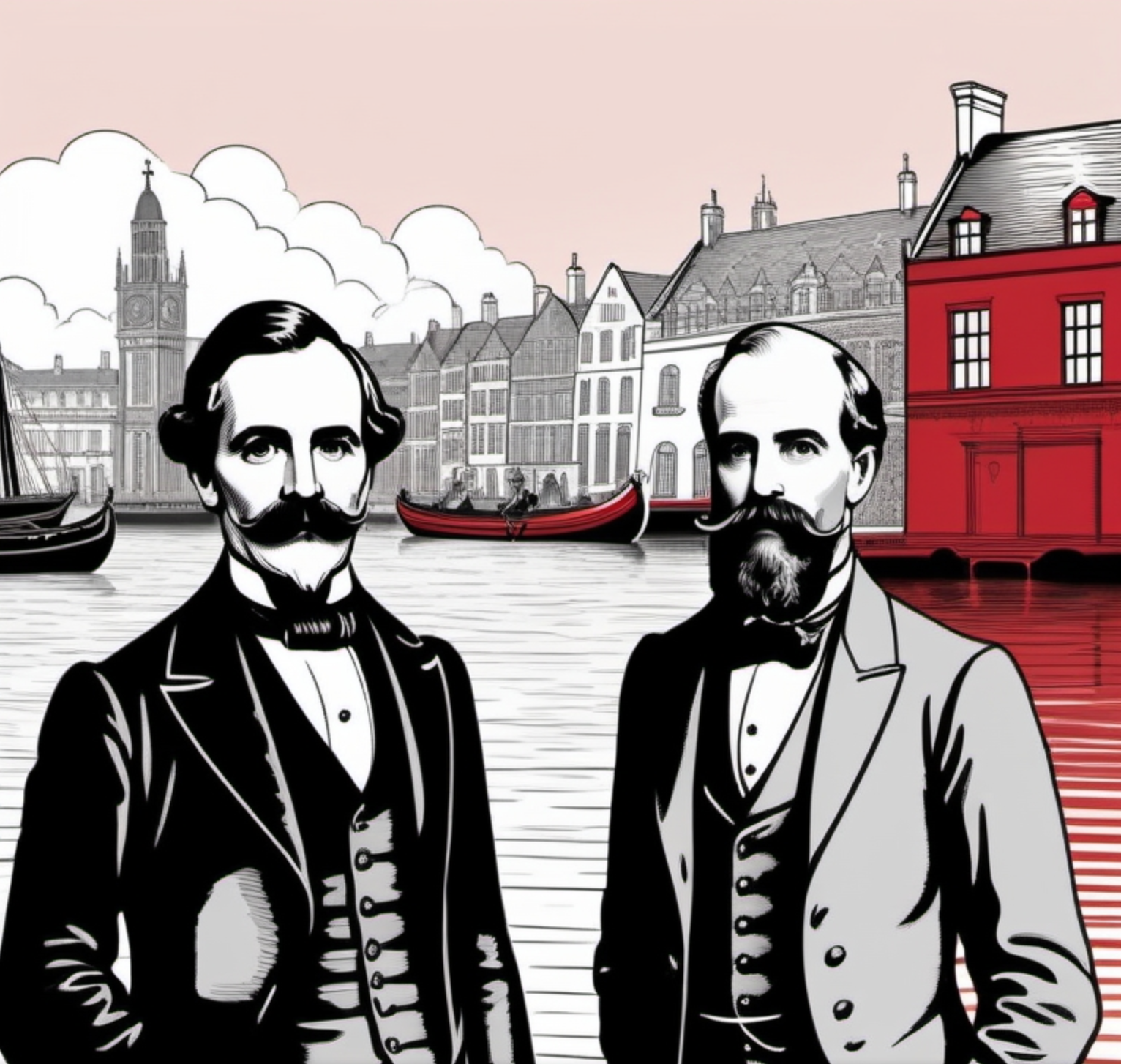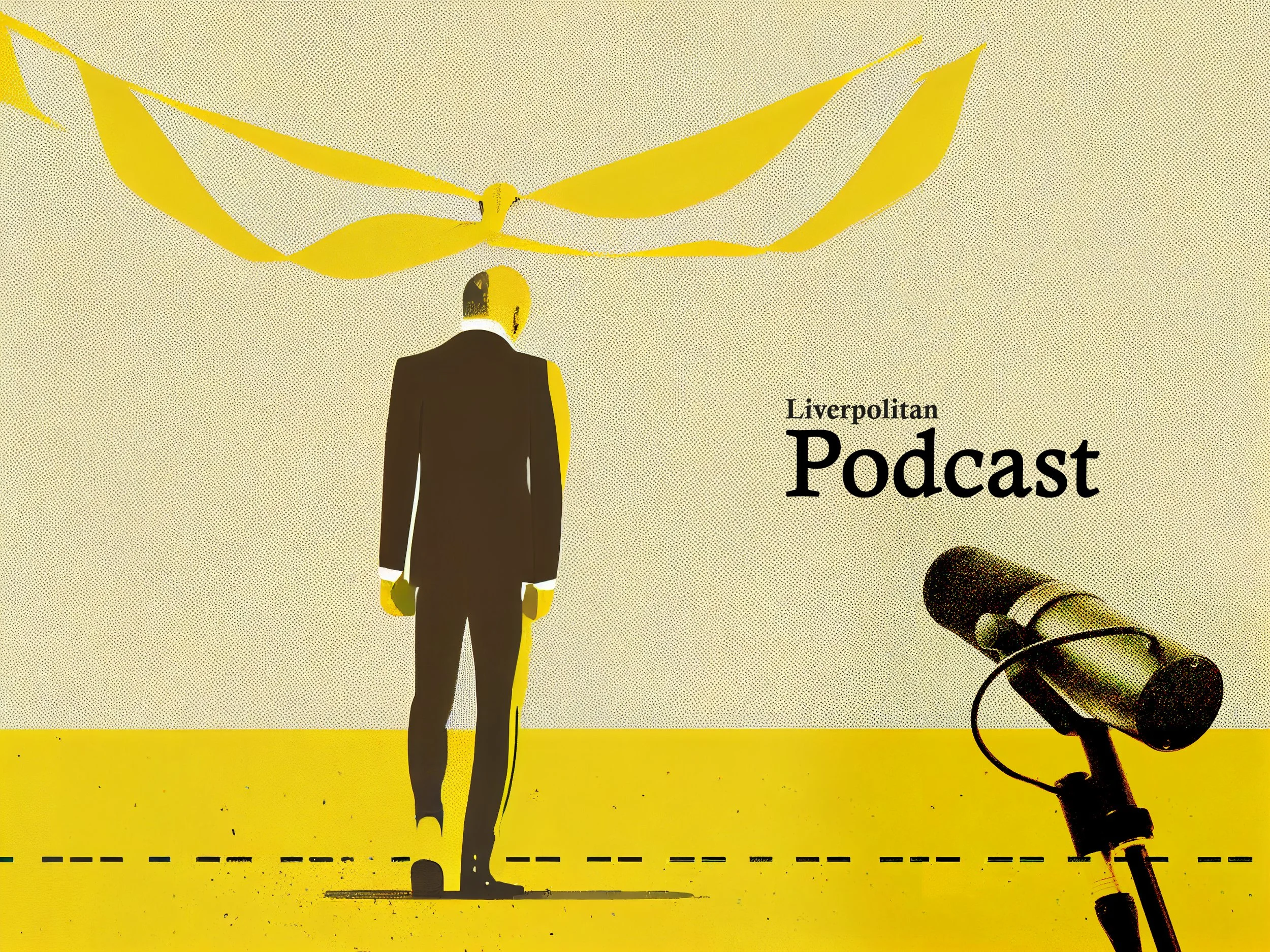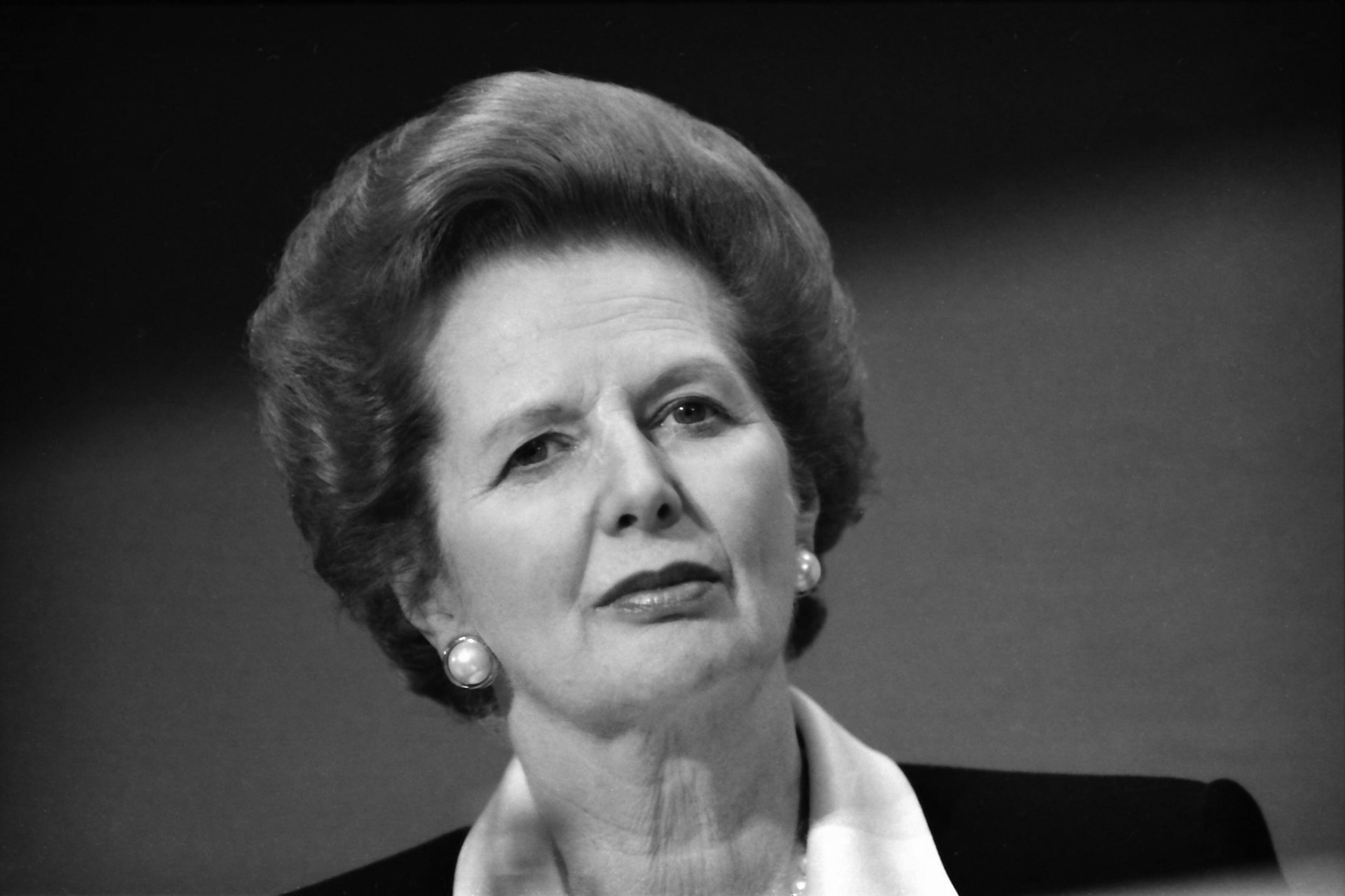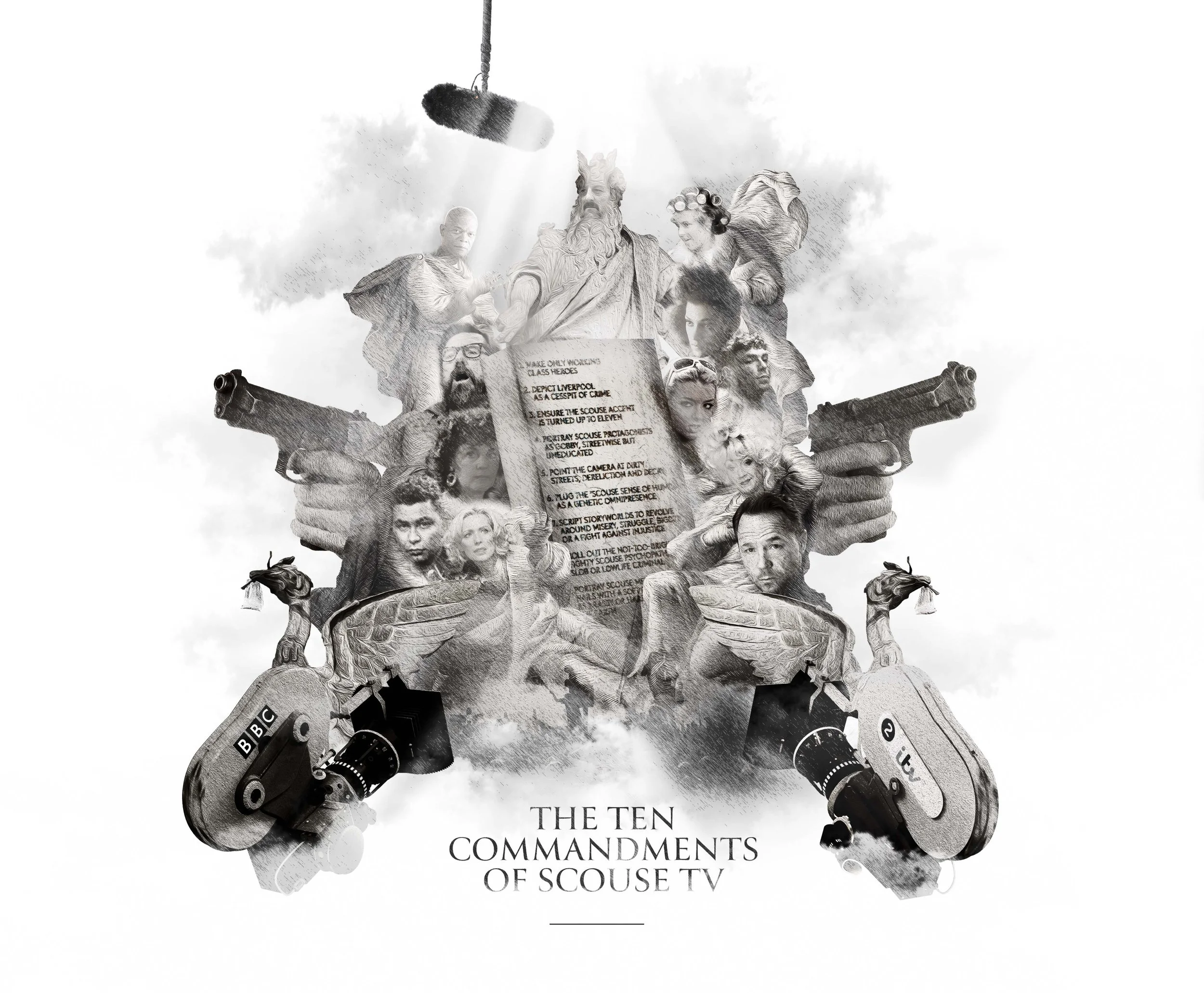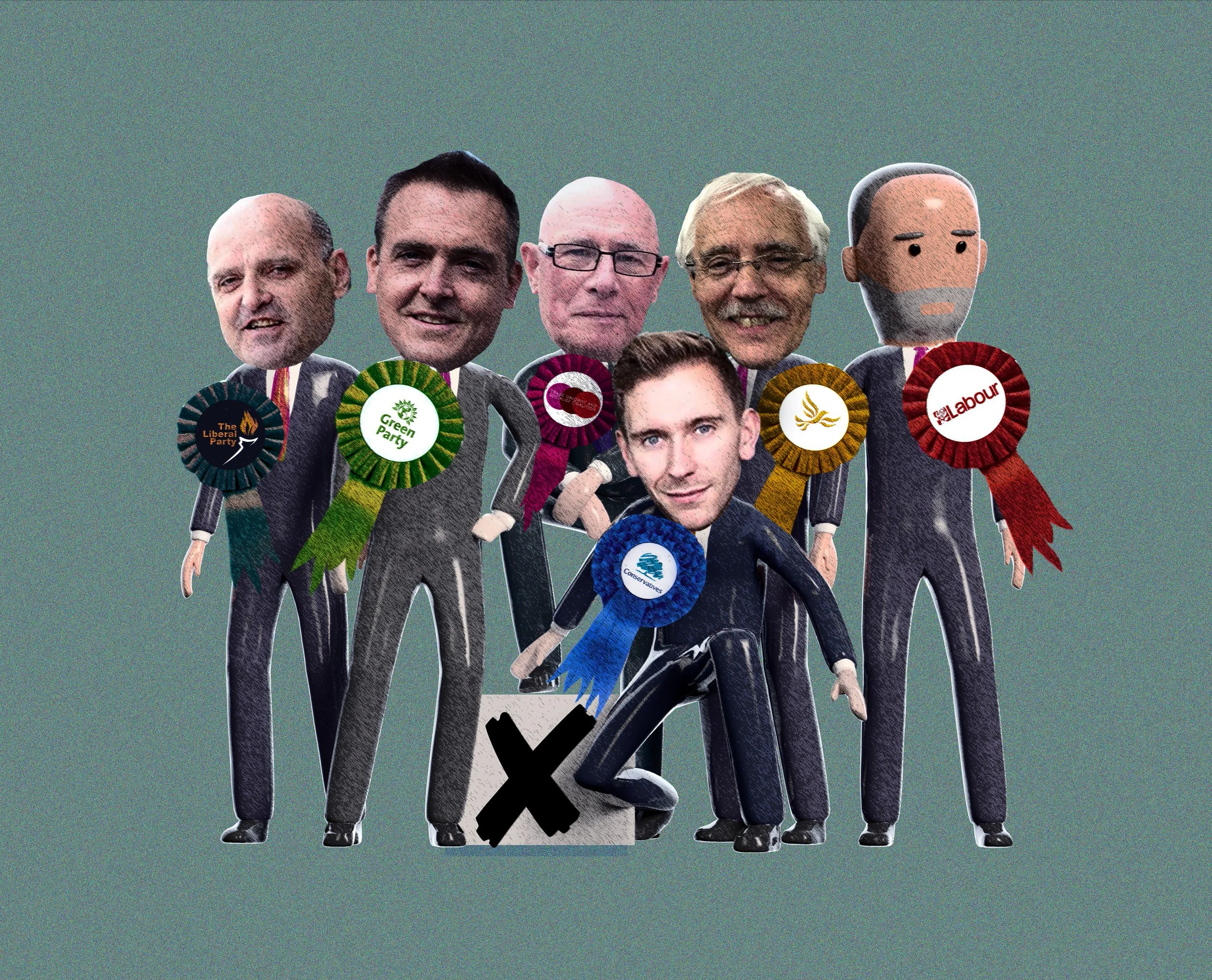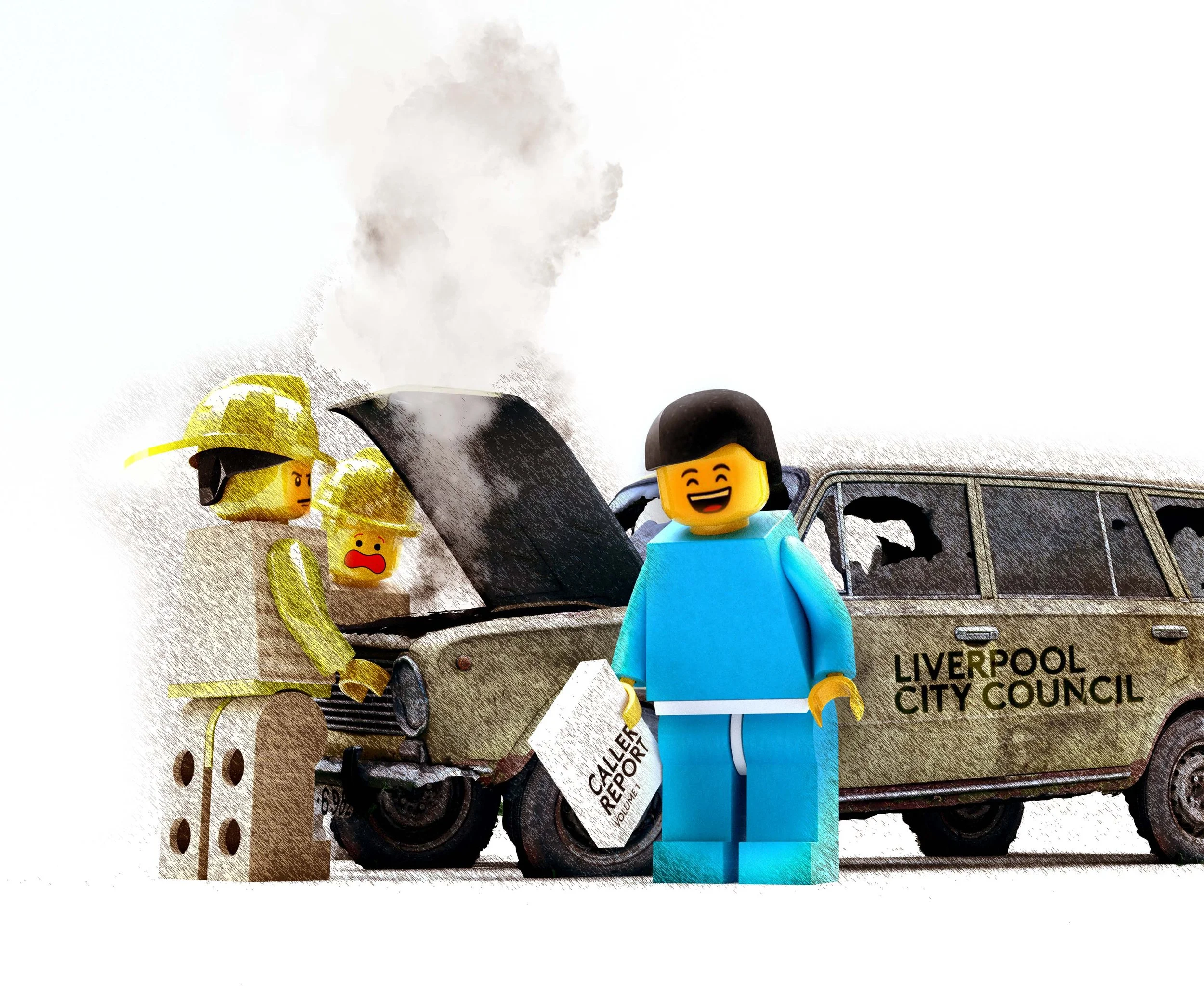Recent features
Pact! What Pact? An Insider’s View on the Lost Battle to Defeat Labour
In the run-up to the 2023 Local Elections in Liverpool, three men working in the shadows, tried to corral the opposition parties into a pact capable of doing some serious damage to Labour at the polls. But in the face of factional intransigence, personality clashes and party ambitions it was doomed to failure. This is the inside story of that failed mission told by one of those men.
Jon Egan
In the run-up to the 2023 Local Elections in Liverpool, three men working in the shadows, tried to corral the opposition parties into a pact capable of doing some serious damage to Labour at the polls. Described as an exercise in herding cats, the enterprise was ultimately doomed to failure, as factional intransigience, personality clashes and party ambitions took hold, before the electorate then delivered the killing blow. This is the inside story of that failed mission told by one of those men, political consultant, Jon Egan.
“Why are we doing this?” is a question that former BBC Radio Merseyside broadcaster, Liam Fogarty and I have been asking ourselves on and off for more than twenty years.
Even before our involvement in the now largely forgotten Liverpool Democracy Commission, we have been kept up at night wondering how to fix Liverpool's broken civic democracy. Years pumped into a losing battle, the odds very much against us. Have we been wasting our time?
The context for the latest phase of anguished introspection was this year’s local elections in Liverpool which, as you may have noticed, returned Labour to power with an increased majority on the City Council. Before explaining the efforts that Liam, myself and Stephen Yip, a former City Mayor candidate and founder of the charity, KIND, made to avert this seemingly predestined eventuality, it’s worth taking the time to fully comprehend and meditate upon the extraordinary fact of Labour’s victory.
There is no simple or rational explanation for Labour’s achievement, although the campaigning skills of my former Labour Party colleague and strategist, Sheila Murphy need to be duly recognised. The Labour campaign was a brilliantly executed masterclass in misdirection, diversion and manipulation worthy of the illusionist, Derren Brown - wiping the collective memory of the city’s voters and convincing them that their party bore absolutely no responsibility for the endemic chaos, waste, corruption and ineptitude of the last ten years. This election, apparently, had little to do with how a struggling city, effectively governed by colonial administrators, was going to put its house in order. No, it turns out the script was the old familiar one about sending a message to the city's historic arch-nemesis - The Tories.
The result, I suppose, proves precisely how difficult it is for people to overcome addictive and self-harmful habits like voting Labour in Liverpool. Maybe what the city needs is not so much new councillors, but counselling.
‘The Labour campaign was a brilliantly executed masterclass in misdirection, diversion and manipulation worthy of the illusionist, Derren Brown.’
In The Myth of Sisyphus, the writer Albert Camus defined the absurd as the irreconcilable gulf that separates human aspirations from the world’s predisposition to thwart them. The tragic image of Sisyphus struggling to roll his enormous boulder to the top of the hill, already sensing the futility of his labours against the forces of gravity, is an apt metaphor for the investment in time that Liam and myself have made in initiatives, campaigns and conversations undertaken over many years in the hope of making Liverpool’s politics function normally. So if the narrative of this election campaign carries the darkly comic resonances of dramatists, Beckett and Ionesco, and their Theatre of the Absurd, then this is not literary pastiche, but rather the perfect paradigm for Liverpool politics. And in that spirit, it seems appropriate to start not at the beginning, but at the end.
One of the most inexplicable aspects of the election result, was the way that the defeated parties far from despairing at the loss of an historic opportunity, were to varying degrees seemingly satisfied (or at worst only mildly disappointed) with their less than modest achievements. For the Liverpool Community Independents getting only three of their cohort re-elected was at least ‘a springboard’ from which to progress. For Green Party Leader, Tom Crone, “bitter disappointment” extended only as far as lamenting the loss of one target ward (Festival Gardens) by a single vote.
For Richard Kemp, the eminence grise of Liverpool Liberal Democracy, the pitiful addition of three councillors, would give his party “plenty of time for reflection on how the council should work, and where the city should be going.” One wonders how after four decades as a City Councillor, Richard was still trying to figure out these rather elementary conundrums, before he finally decided to fall on his sword and announce his long anticipated retirement as party leader.
So let’s rewind to the beginning, or at least the beginning of Act 2. Act 1 being the heroic, but ultimately doomed campaign by Stephen Yip, to be elected as City Mayor in 2021.
Running a surprisingly close and creditable second to Labour’s Joanne Anderson , Yip’s undoing was the stubborn refusal of Green Party Leader, Tom Crone and the ubiquitous Kemp to stand aside to allow for the possibility of deliverance from a disgraced and discredited Labour administration. The 2021 election seemed, at the time, to be a decisive “never again” moment, with penitential expressions of regret from Liberal Democrats and Greens and pledges to learn the lesson of fractured opposition.
Like trying to roll a rock up a hill. Now more than ever, Liverpool’s opposition parties needed to master the alien vernacular of co-operation.
So to Act 2
Following the publication of the Caller Report in 2021 it was decreed that Liverpool should abandon the baroque and inscrutable election-by-thirds system, and instead adopt an all-out election on new boundaries with the majority of councillors to be elected from single member wards. Now more than ever, Liverpool’s opposition parties needed to master the alien vernacular of co-operation. Seemingly unable to conduct conversations between themselves, the task of scoping the opportunities for an electoral pact fell to myself, Stephen Yip and Liam Fogarty. Having manoeuvred the boulder to within inches (well maybe a couple of hundred metres) of the summit in 2021, we felt that one more effort was something we owed both to ourselves and the people of Liverpool. Far from delivering the new dispensation promised following her election, the era of Anderson 2.0 (Joanne) was notable mainly for its dismal continuity - a botched energy contract costing the city millions, hundreds of millions more written off in uncollected tax and rates, revelations concerning councillors dodging parking fines and extended roles for Government Commissioners taking responsibility for even more substandard and failing services.
The process of encouraging political and electoral co-operation between Liverpool’s opposition factions began with a discrete gathering at Richard Kemp’s house in the summer of last year. Treated to copious quantities of sausages and dips, a generally constructive exchange with Richard and his Lib Dem colleague, Kris Brown, concluded with a suggestion that Liam attend their upcoming policy conference to raise a few issues and provide an outsider perspective on the challenges of the upcoming election. Both from this gathering and the subsequent conference, we sensed a distinct lack of enthusiasm for the idea of any form of electoral pact. If this was to happen, pressure rather than polite persuasion might need to be applied.
By the end of the year, we had started informal conversations with friends and contacts within the other three opposition groups - The Liberal Party (an eccentric relic from the pre-Alliance / Lib Dem era sustained in Liverpool through the hyperactive exertions of its charismatic talisman, Cllr Steve Radford), the Liverpool Community Independents (a party formed by dissenting former Labour councillors primarily disillusioned by cuts and corruption) and the Green Party. With the prospect of another squandered opportunity on the horizon, we resolved to take the decisive step of inviting the leaders to a more formal gathering hosted by Stephen Yip at the HQ of his charity, KIND. The tactical approach was to corral the three most willing participants into an agreement and then publicly challenge or shame the Liberal Democrats to come on board.
‘It began with a discrete gathering at Richard Kemp’s house in the summer of last year, where we were treated to copious quantities of sausages and dips.’
Eschewing sausages for club biscuits (salted caramel flavour), the more business-like ambience of the gathering cut straight to the quick. Without an agreement from opposition parties (all of whom occupied terrain to the left of the centre) we would be facing the prospect of another four years of Labour misrule. Apart from pointing out the mutual benefits of a pact, we offered to provide whatever practical, organisational and campaigning resources we could muster from the networks created during Stephen Yip’s mayoral campaign. Admittedly, these were no match for the Labour legions, but we believed they could help the disparate groups to sharpen core messages, target more efficiently and raise the quality and potency of communication collateral. These resources were conditional on the reality of a pact and a clear indication that its participants were putting city before party.
From the outset the Liberals and Community Independents were fully and unequivocally committed to the principle and practicalities of a pact. For Tom Crone and the Green Party, the proposition was clearly more problematic. Promising to take the idea away for "consideration", we were left with an uneasy sense that history was repeating itself. It was unclear at the time, and indeed still is, by what means of mysterious convocation, the Liverpool Green Party reaches its decisions. With Tom intimating that the national party was instructing them to field the maximum possible number of candidates, the sad implication was that regime change in Liverpool was less of a priority than adhering to the diktat from on high. After several days of radio silence, I was tipped off that Tom would be attending a film event at St Michael's church, and it might be a useful opportunity to see how things were progressing. Our conversation, sadly, revealed that they weren't, and that even a three party pact was becoming an unlikely, if not entirely illusory, possibility.
Stephen Yip's description of our undertaking as an exercise in herding cats was suddenly complicated by the unexpected arrival of a much more exotic species defying all known zoological and political categorisations. The first in a series of audiences with hotelier and property developer, Lawrence Kenwright, took place in late December in the sepulchral gloom of the Alma de Cuba bar, formerly St Peter's church. The bar had been the venue for a series of revivalist-style rallies at which Kenwright had railed against council corruption, presenting himself as the figure-head for a new, popular movement called Liberate Liverpool, that would sweep aside the cliques and cabals that had brought the city to its current parlous state.
‘It was unclear at the time, and indeed still is, by what means of mysterious convocation, the Liverpool Green Party reaches its decisions.’
I was deputed to conduct the initial conversation, that provided a fascinating insight into Kenwright's character and motivation, the history of his relationship with the City Council and Mayor Joe Anderson, and the ambitions underpinning his political project. Kenwright's almost visceral determination to unseat Labour was evident; what was less clear was his precise role in the project, and the means and method by which it was to be achieved.
Whilst it was easy to understand the motivations behind Liberate Liverpool, and its attraction as an antidote to an out of touch and self-serving politics, it was difficult to believe that it offered any kind of remedy. Symptoms are not cures, and Liberate Liverpool’s attraction for cranks, conspiracists and far-right interlopers was perhaps an inevitable consequence of its febrile genesis and almost millenarian rhetoric. Some good and sincere people answered the call only to be sent into battle with the campaigning equivalent of peashooters and water pistols. At a subsequent meeting (accompanied this time by Liam Fogarty and ex-Labour Councillor Maria Toolan), we embarked on what we thought was a subtle policy of dissuasion, politely pointing out the inherent flaws of a campaign targeting "people who don't vote" and relying almost exclusively on social media, only to be accused by a Kenwright acolyte of "disrespecting Lawrence."
Our approaches were an attempt to scope the albeit remote possibility of identifying suitably vetted independent candidates who could be assumed into a broader-based Clean-Up Coalition. It is an indicator of our desperation that this hope was ever entertained.
‘We embarked on a subtle policy of dissuasion, politely pointing out the inherent flaws of a campaign targeting "people who don't vote" only to be accused by a Kenwright acolyte of "disrespecting Lawrence."'
As February rolled into March, our efforts became simultaneously more modest and more desperate. Following advice from a sympathetic insider, we were advised to bypass Kemp and re-pitch the idea of an electoral pact to the Lib Dems through the party's former leader and campaign supremo, Lord Mike Storey, who we later discovered was to stand as a candidate in Childwall. Alas Stephen Yip’s conversation with Storey was even more emphatically negative than the sausage-gate soiree with Kemp months earlier.
It was clear we needed to explore more pragmatic alternatives. If not a city-wide pact, perhaps a nod and a wink understanding to avoid actively campaigning in each other's target seats? Maybe also an agreement around some core commitments to improve transparency and accountability, combat corruption and restore public confidence in the City Council? Initially, Richard Kemp sounded refreshingly and surprisingly up for it, but with the fatal complication that some of their target seats were also target seats for the Greens and the Liberals. Nods and winks would have to be restricted to the safest Labour seats in Liverpool where none of the opposition parties entertained serious hopes of winning. In other words, for show only. Meanwhile, Stephen Yip drafted four pledges on transparency and corruption, which were immediately endorsed by the Community Independents and the Liberal Party. The Lib Dems, however, would not sign up; the response published on the But What Does Richard Kemp Think? blog, a depressingly patronising and public epistle "explaining" that the proposals were either illegal, already in place (due largely to his efforts) or would be a waste of money. It seemed futile to point out to Kemp that the proposal for an Independently-chaired Standards Board was not only perfectly lawful, but had been initially drafted for Stephen's Yip’s 2021 manifesto by Howard Winik, who was now a Liberal Democrat candidate.
Unlike his predecessor, does the Lib Dem’s new leader, Carl Cashman have the imagination or inclination to detach his party from its comfortable civic niche in South Liverpool suburbia?
For me, this was perhaps the final and conclusive evidence that laid bare the true nature of Liverpool Liberal Democrats and their deep complicity in a council whose corrupting and dysfunctional culture long predates the shortcomings of the Joe Anderson era. They are not, in my view, an "Opposition Party" in any meaningful sense of the word, but are more akin to the tame collaborators in the sham democracies of the Soviet Bloc - the Liverpool equivalent of the Democratic Farmers Party of East Germany. They have no desire to fundamentally reform or reset a moribund civic culture, but are content to bide their time in the hope that circumstances will grant them an opportunity to preside over its decrepit edifice. In one sense, Liberate Liverpool were right; the Liberal Democrats are not part of a solution, but are an intrinsic and intractable part of the problem. Whether Kemp’s much younger successor, the neophyte Carl Cashman, has the imagination or inclination to detach his party from its comfortable civic niche and the bucolic pastures of South Liverpool suburbia, will largely determine whether Liverpool's local democracy remains a hollow charade, or becomes an empowering mechanism for change.
‘The Lib Dems are not an "Opposition Party" in any meaningful sense of the word, but are more akin to the tame collaborators in the sham democracies of the Soviet Bloc - the Liverpool equivalent of the Democratic Farmers Party of East Germany.’
Epilogue
It is the tragic-comic circularity of the narrative that makes Liverpool politics an absurdist drama. The interminable wait for Godot - an intervention, a new structure, a new political alignment, a salvific figure able to break the cycle of failure, corruption and chaos that has blighted our city for as long as anyone can remember.
On the day of polling, I was helping Maria Toolan with some last minute door knocking to encourage supporters to get out and vote in the City Centre North ward. She was already sensing with fatalist resignation, that her efforts to unseat two former Labour colleagues had failed. "The problem is," she lamented "people aren't bothered about waste and corruption, it's what they expect from the city council and they don't believe that it's ever going to change."
This is the suffocating dead weight of Liverpool politics, an oppressive inertia and sense of fatalism engendered by decades of broken promises, betrayed trust and shameful failure. It's the gravitational drag that immobilises progress and snuffs out any glimmer of a more honest and hopeful politics.
Labour's strategy understands and exploits this endemic cynicism. It doesn't really matter how badly we've governed Liverpool, this is a Labour city and elections cannot alter this brute existential reality. Sending a message to the Tories might actually seem like a more worthwhile place to put an ‘X’ than investing in a hope for something better, when you suspect that this isn't even a logical possibility. Little wonder that 8 out of 10 Liverpool voters decided to stay at home.
Would an electoral pact have unseated Labour? Would it have signalled to voters that there was a tangible possibility of an alternative administration? It's hard to say, but looking at the results and totting up the number of seats where competing opposition parties on the progressive wing of politics won more votes than the Labour majority, it cannot be completely discounted.
Labour mis-fire. By personalising the campaign against Gorst, they had also localised it. In Garston, the election was no longer a rehearsal for a General Election. It was about the honesty and integrity of individuals and their credentials to represent their community - weak territory for Labour to fight on. Photo from Twitter @Pablo8485
If there is cause for hope, it was in the response to what was one of the most deplorable manifestations of Liverpool Labour's darker instincts. The officially sanctioned Labour campaign, scripted from on-high and professionally disseminated under the supervision of Sheila Murphy and their Regional Office, was a vacuous mash-up of kick-the-Tories and Eurovision-phoria. But beneath the sanitised veneer another more vicious and toxic campaign was being waged against Community Independent candidates who had originally been elected under Labour colours. Fake social media accounts became platforms to abuse, ridicule and defame the Community Independents with particular venom aimed at Sam Gorst, a former Labour Councillor seeking re-election in Garston.
The ferocity of the campaign against Gorst reached its nadir with a shamefully deceptive leaflet masquerading as a community newsletter which raked up Gorst's old social media posts, and more seriously, falsely implied that he had used his position as a councillor to jump the social housing queue. Within an hour of the leaflet being issued, we launched our final, and perhaps only effective contribution to the election campaign. A round-robin email was despatched to secure the support of the city's four opposition leaders in a joint denunciation of Labour's malicious and dishonest leaflet. And to their credit, Kemp, Radford, Crone and the Community Independent's Leader, Alan Gibbons all replied with personalised quotes for a media release within 30 minutes. The unprecedented show of unity secured positive media coverage, that was followed by The Echo's political correspondent, Liam Thorp exposing the tell-tale fingerprints of Labour on the scurrilous social media accounts.
An otherwise faultless Labour campaign had slipped up. By personalising the campaign against Gorst and his running mate Lucy Williams, they had also localised it. This election and the campaign against Alan Gibbons in Orrell Park, were no longer just dummy run rehearsals for a General Election or a vote of thanks for delivering Eurovision; they were about the honesty and integrity of individuals and their credentials to represent their community. Gorst, Williams and Gibbons' victories may or may not be a platform for the future growth of the Liverpool Community Independents Party, but they are perhaps a hopeful intimation that gravity doesn't always win.
Jon Egan is a former electoral strategist for the Labour Party and has worked as a public affairs and policy consultant in Liverpool for over 30 years. He helped design the communication strategy for Liverpool’s Capital of Culture bid and advised the city on its post-2008 marketing strategy. He is an associate researcher with think tank, ResPublica.
Share this article
What do you think? Let us know.
Write a letter for our Short Reads section, join the debate via Twitter or Facebook or just drop us a line at team@liverpolitan.co.uk
Referendum or bust – Liverpool’s last chance?
A discredited administration hamstrung by scandal. A weakened leader eyed by pretenders to the throne. A collapse of trust. And, underlying it all, a sense of drift and a loss of status in the world. For Boris Johnson’s Britain read Joanne Anderson's Liverpool. Both increasingly tottering on the precipice.
Liam Fogarty
A discredited administration hamstrung by scandal. A weakened leader eyed by pretenders to the throne. A collapse of trust. And, underlying it all, a sense of drift and a loss of status in the world. For Boris Johnson’s Britain read Joanne Anderson's Liverpool. Both increasingly tottering on the precipice.
Of course, it would be unfair to blame the city's current Mayor for more than a fraction of the woes afflicting Liverpool and its council. But her discarded pledge of a referendum to decide on whether to keep Liverpool's mayoral system was more than just another politician's broken promise. It was an affront to local democracy. The pitifully small response to the council’s subsequent governance consultation – just 3.5% of Liverpool residents replied - was inevitable. Launched in March, and conducted almost entirely online, the process was an artist's impression of a democratic exercise. The letter sent to each city household, directing its recipients to the Liverpool – Our Way Forward website, looked and read like a tax demand. Residents had 3 months to reply but a council taxpayer-funded "Have Your Say" supplement to promote the consultation was published with the Liverpool Echo on June 10th a mere ten days before the submission deadline. Perhaps if they were going to be this half-hearted they shouldn’t have even bothered. Its four vacuous pages contained plenty of room in which to set out the arguments for and against the various governance models on offer. Incredibly, it did not do so. An opportunity for meaningful engagement with Echo readers was spurned in what became a literal waste of space.
So what is to be done?
In his ground-breaking mayoral election campaign last year, as Liverpool absorbed the findings of the Caller Report into council misconduct, Independent candidate and eventual runner-up, Stephen Yip, called for a "re-set" of Liverpool City Council. He demanded top-to-bottom reforms in response to Caller's damning discoveries. The re-set phrase proved popular and was soon taken up by Labour's candidate, Joanne Anderson during her campaign. Once elected, however, she abandoned her commitment to resolve the mayoralty issue by means of a public vote, claiming a consultation would cost less than a full referendum which she deemed too expensive to justify. Since Joanne’s election, we have seen backsliding on the promises of more transparency and scrutiny of council business. Caller’s recommendation for a significant reduction in the number of councillors has been ignored, with the current 90 councillors being reduced merely to 85. Meanwhile, government-appointed commissioners now report that in several respects our council is going “backwards not forwards” in dealing with the issues it faces.
The loss of millions of pounds thanks to a botched energy contract showed systemic failings were not confined to the departments excoriated by Max Caller. There’s talk of more commissioners being drafted in, and more departments falling under their iron fist as skeletons continue to tumble out of closets. Not so much a re-set, then, as a return to politics as usual in Liverpool.
Stephen Yip and I agree that the first step towards an actual re-set is to let the people of Liverpool decide how their city should be led. Liverpool is local democracy’s ‘black hole,’ the only major city in England to have repeatedly denied its residents the chance to vote on how it should be run. The idea that Liverpool's citizens should be able to decide whether to keep or scrap the mayoral system is anathema to the control freaks at the Town Hall. Our politicians won't give us the mayoral referendum we are entitled to unless they are forced to.
Former Independent Mayoral Candidates, Liam Fogarty and Stephen Yip, launch ReSet Liverpool, a campaign to force Liverpool City Council to run a full referendum on city governance.
ReSet Liverpool
That’s why we are launching ReSet Liverpool, a petition-led campaign to give the people of the city the referendum they were promised. We reject the council's attempt to take such a huge decision on the city’s governance by itself. Options for the future running of Liverpool should be put directly to its residents at the ballot box.
Our petition aims to secure the 16,500 signatures (5% of the city's electorate) needed to trigger a referendum on whether Liverpool should retain the post of directly elected Mayor. A referendum held next May to coincide with scheduled elections for a Mayor and local councillors would come at minimal additional cost.
The final say on this issue should belong to the people, not politicians. It’s a matter of principle. Self-serving attempts to sideline the electorate are destructive. They weaken the already-strained connection between the people of Liverpool and their local council and lead to greater cynicism and indifference.
“The final say on this issue should belong to the people, not politicians. Options for the future running of Liverpool should be put directly to its residents at the ballot box.”
Without a referendum, Liverpool’s politicians are likely to revert to type. If they do move to abolish the mayoralty without public consent, then the simmering – and largely unreported - power struggles inside the council’s majority Labour group will burst open, absorbing the time and energies of all those involved. Mayor or no Mayor, in May 2023 every Liverpool council seat will be up for grabs on new electoral boundaries. As what is now 30 wards morphs into a whopping 70 smaller ones, once safe council positions will be under threat as councillors from the same party will be forced to compete with each other. The jockeying to be selected as candidates has already started and local parties’ fratricidal tendencies will be given full rein. The ward elections themselves will provide ideal conditions for the kind of hyper-local political warfare that appeals to party activists but no-one else. The chances of such a process producing a clear city vision, strong civic leadership and a coherent policy platform will be remote. Not for the first time, Liverpool politics will be all tactics and no strategy.
For ReSet Liverpool, a referendum on the mayoralty is the very least the people of this city deserve. May be it can also be the start of a broader campaign to reform our council and renew our city. If you are registered to vote in Liverpool, download a petition form (HERE) and if they live in Liverpool, get your friends, family and neighbours to sign up. Together, we have a chance to help kick-start that overdue process of civic renewal. It could be the last chance we’ll get.
Liam Fogarty is co-founder of ReSet Liverpool. A journalist, broadcaster and lecturer, he ran as an independent in Liverpool’s first Mayoral Election in 2012, finishing second.
Further Information
To find out more about Reset Liverpool and to download a copy of the petition, visit www.resetliverpool.org. Note: Only Liverpool residents over the age of 18 who are registered to vote can sign the petition. Completed petition forms should be returned to:
Reset Liverpool
301 Tea Factory
Fleet Street
Liverpool
L1 4DQ
Share this article
What do you think? Let us know.
Write a letter for our Short Reads section, join the debate via Twitter or Facebook or just drop us a line at team@liverpolitan.co.uk
The Beatles: Inspiration or dead weight?
When does city pride in the Fab Four turn into a hindrance to future achievement? Jon Egan argues that the city of Liverpool is in danger of becoming a Beatles theme park, and its world conquering band a crutch to exorcise the painful intimations of our diminished relevance and prestige. In looking to the past, have we forgotten what made John, Paul, George and Ringo so special - their fearless embrace of the avant-garde, the contemporary and the new?
Jon Egan
There was something profoundly true and desperately sad in University of Liverpool lecturer, Dr David Jeffery's acerbic observation that "Liverpool is a Beatles' shrine with a city attached."
It is the dispiriting obverse to music journalist, Paul Morley's rhapsodic description of Liverpool as "a provincial city plus hinterland with associated metaphysical space as defined by dramatic moments in history, emotional occasions and general restlessness."
Jeffery's comments on Twitter appear to have been inspired or provoked by the recent announcement that Liverpool would be using a £2 million grant from Government to advance the business case for yet another "world-class" and "cutting-edge" Beatles' attraction on our hallowed waterfront. Presumably, it will be sandwiched somewhere between the Beatles statue and The Beatles Experience and conveniently close to The Museum of Liverpool and The British Music Experience with their not inconsiderable collections of Beatles artifacts and memorabilia. The exact nature of this new cultural icon remains a little unclear, however, amidst wildly differing descriptions offered by our City and Metro Mayors.
What is deeply depressing about this announcement is that it suggests that Liverpool is incapable of imagining any kind of cultural proposition that is not predicated on the seemingly inexhaustible allure of the four boys who shook the world.
There is of course a readily available and seemingly plausible justification for the never-ending Beatles' fetish, and that is the claim that they are the anchor for our hugely important tourism economy. Notwithstanding the implication that David Jeffery is right to suspect that the city is consciously morphing into a Fab Four theme park, I suspect that this is not exactly the whole truth. For Liverpool, The Beatles are a crutch, a cherished emblem of identity and importance used to exorcise painful intimations of diminished relevance and prestige.
In the novel, Immortality, Czech writer Milan Kundera tells the story of the man who fell over in the street, who on his way home stumbles on an uneven pavement, falls to the ground and arises dazed, grazed and dishevelled, but after a few moments composes himself, and gets on with his life. But unbeknown to the man, a world famous photographer happens to witness the scene and quickly snaps an image of the bewildered and bloodied pedestrian. He subsequently decides to make this picture the cover image for his new book and the poster for his international exhibition. For the man, a momentary misfortune freeze-framed, replicated and disseminated across the world, becomes the image that will forever define who he is.
The more we conflate the Beatles brand with the city's identity, the less space we have to imagine anything original, contemporary or remarkable.
In a sense, Liverpool is the City that fell over on the street, our external image is in significant part, defined by a succession of misfortunes, afflictions and tragedies that befell the city over two decades at the end of the last century. These events forged images, preconceptions and stereotypes that still blight us today and have never been successfully exorcised or replaced.
The Beatles hark back to a time before this blight, when Liverpool was in Alan Ginsberg's celebrated phrase, "the centre of consciousness of the human universe." They are, I believe, a therapeutic distraction from the task of making a different story or discovering a new identity.
Culturally, our Beatles fixation is unhealthy, debilitating and regressive. In fact, I fear we are reaching a point where The Beatles will become the single biggest impediment to any form of civic progression, or any serious project to make Liverpool important, interesting or relevant in today's world. If we are going to have a civic conversation about what kind of "world class" Beatles attraction should be erected at The Pier Head, my immediate impulse would be to recommend a mausoleum.
But perhaps a more imaginative and original idea was the one offered by the late Tony Wilson. That supreme Mancophile, Factory Records producer, Granada TV reporter and founder of the Hacienda nightclub was never held in particularly high regard in this city, especially following some tongue in cheek words of encouragement he gave to Club Brugge on the eve of their European Cup semi-final with Liverpool in 1977. Scousers may resemble elephants with respect to their prodigious powers of memory, but our skins can sometimes be just a tiny bit thinner. Tragically, Wilson's Mancunian persona and his tendency to lapse into casual profanity whilst presenting his project to civic decision-makers proved the undoing of his brilliant and visionary proposition for POP - the International Museum of Popular Culture. Pitched as the big idea for the European Capital of Culture, and the solution that would provide content for Will Alsop's audacious but otherwise functionless Fourth Grace, POP was a talisman for instant reinvention - a Beatles-inspired attraction without any reference to The Beatles. Alas it never happened.
Wilson had first dreamt of POP as an adornment for his own native city and a fitting celebration of its notable contribution to the history of modern popular music, but he soon realised that it was the right idea for the wrong place. He would often express irritation that when travelling in the US he would frequently have to explain where Manchester was by reference to its proximity to Liverpool - a place that people had actually heard of. And there was also the grudging recognition that at a time when Liverpool was "the centre of the human universe" globalising popular culture - Manchester could only offer us Freddy and The Dreamers. Even the outrageous charisma of Manchester United football god, George Best was derivative as he was often dubbed the 5th Beatle.
POP would not simply have been about popular music, it would encompass every facet of popular culture, every expression of contemporary creativity in film, TV, advertising, games, cars, sport, fashion, digital technology and consumer culture. And it was proposed for Liverpool because this was the place that spawned a phenomenon that reached the four corners of the Earth. It was a moment when the world discovered a common currency and a cultural vernacular intelligible to every ear.
POPs content would be dynamic and ever-changing, a continuous exposition of the new, curated by global creatives, designers and technologists. It would be Liverpool recovering its world city perspective and its capacity to invent and innovate - the pool of life, the birth canal for the extraordinary and the unprecedented. Its ingenious paradox was its implicit assertion that The Beatles did not make Liverpool, but Liverpool made The Beatles.
They monopolise our self-image occluding facets of identity and history now only half-glimpsed in the penumbra of a shadowy scouse dreamtime.
All of which is a million miles from Steve Rotheram's "world-class immersive experience" which he promises us will be more spectacular than a glass cabinet containing John Lennon's underpants. We can hardly wait.
If all we can possibly imagine are The Beatles etherealised into holograms - almost literally spectres from beyond the grave - then David Jeffery is right and Liverpool's once rich and cosmopolitan culture has collapsed into a black hole of redundant clichés. The more we inflate our Beatles offer and conflate their brand with the city's very identity, the less space we have in which to imagine anything original, contemporary or remarkable. Along with football (which at least tells new stories) they have come to monopolise both our external brand and our officially curated self-image, occluding facets of our identity and history that are now forgotten and suppressed, only half-glimpsed in the penumbra of a shadowy scouse dreamtime.
The Beatles have come not only to represent our brand, but have also helped to define our personality, attitude and accent - cheeky, chippy, sassy and defiant. As emblems of the 60s social revolution, they helped to forge and reify the idea of Liverpool as a working class city - or more accurately an exclusively working class city. As rock journalist Paul duNoyer, notes in his book, Wondrous Place, this is both a false and profoundly disabling imposition. Not only, as Tony Wilson asserted, are we the city that globalised popular culture, but we are a city that has contributed massively to every facet of culture, ideas and invention over the last 200 years.
The world's first enclosed dock and inter-city railway, together with the completion of the Transatlantic telegraph cable, are not only stunning achievements in technological innovation, but bolster the credible claim that globalisation began here.
The extent to which we have been willing to squander or disown the breadth of our cultural heritage was brought home to me in the febrile final stages of the European Capital of Culture bidding competition. Having commissioned pop artist, Sir Peter Blake to create a homage to his iconic Sgt Pepper album cover to remind the world, or at least the judging panel, of Liverpool's cultural and intellectual prowess, the task of deciding who exactly was worthy of inclusion was both fraught and enormously revealing. Apart from a few contemporary, and at the time highly topical creatives including the poet Paul Farley, artist Fiona Banner and film-maker Alex Cox, the principal criterion for inclusion appeared to be the directness or intimacy of connection to The Beatles. A lop-sided bias towards musicians, popular entertainers and Sixties icons meant no room for the likes of painters George Stubbs and Augustus John, poets Nathaniel Hawthorne and Wilfred Owen, novelist Nicholas Monsarrat, playwright, Peter Shaffer or even poet and novelist, Malcolm Lowry the author of the celebrated, Under the Volcano. Incredibly, until Bluecoat Artistic Director, Bryan Biggs' finally succeeded in persuading Wirral Council to erect a blue plaque on New Brighton's sea wall, there was virtually no public recognition that one of the 20th century's greatest and most influential novelists had any association with the Liverpool City Region.
Without questioning or diminishing the impact of the Mersey Sound poets (McGough, Henri and Patten) in the 1960s, their literary status is no way comparable to another unsung and forgotten cultural luminary with a significant Liverpool connection - C.P. Cavafy. Now acknowledged as one of the last century's most important and original poetic voices, Cavafy spent much of his childhood at addresses in Toxteth and Fairfield. Greek and gay, his poetry will forever be associated with the city of Alexandria where his family settled after leaving Liverpool. We do not know to what extent his formative years in the city helped nurture Cavafy's creative animus, but transience, up-rootedness and departure are woven into our narrative. Our sense of self and place in the world as Liverpolitans, owe as much to those who moved on, or merely passed through, as they do to those who stayed or settled here.
We are not, and never have been a monochrome canvass or a one trick city. Our culture is dense, deep and multifarious, formed by a hotchpotch of races, creeds and classes. For those tasked with defining a place and communicating its uniqueness to the world, there is always the temptation to reduce and simplify.
Brands, including place brands, are often conceived like Platonic forms - a distilled essence, fixed and immutable. But cities like Liverpool are neither simple nor static, and are thus frustratingly un-brandable. Described by Wilson as a place with "an innate preference for the abstract and the chaotic," our essence is pre-Socratic - unresolved, unpredictable and disconcerting. We know that port cities like Liverpool, Naples, Barcelona and Marseilles have historically been melting pots for ideas, influences and cultures - places where things never quite settled.
But their edginess is not merely a function of a perturbed diversity, it is also literal. It's connected to Marshall McLuhan's philosophical idea of right hemisphere sensitivity and the expanded perspective of what he terms acoustic space. Ports face outwards, they are perched on the precipice of a vast and formless abyss. It's an omnipresent reminder that there are no limits.
For Paul Morley, Liverpool’s character and identity - its ability to charm, entertain, inspire and infuriate - proceed from an inchoate restlessness and fidgety creativity. It's a place "where something happens, most of the time, leading to something else." But it seems like that creative energy and inventiveness have deserted us - or at least our leaders. What was once an animating pulse has been reduced to a piece of hollow rhetoric - a brand attribute.
It's sad that a UNESCO City of Music should have forsaken polyphony, and that we are continually stuck in a repetitive groove, narrowing our identity and stifling our capacity to be original (again). For this reason the very last thing Liverpool needs is yet another Beatles' attraction, even an immersive one.
So, OK, The Beatles were important, are important. They changed the world, but did they change Liverpool? We're still, I hope, the city capable of creating something else.
Jon Egan is a former electoral strategist for the Labour Party and has worked as a public affairs and policy consultant in Liverpool for over 30 years. He helped design the communication strategy for Liverpool’s Capital of Culture bid and advised the city on its post-2008 marketing strategy. He is an associate researcher with think tank, ResPublica.
Share this article
Life after Joe: Ditching the Mayor won’t fix our broken democracy
There’s something nearly all of Liverpool’s political parties agree on - the need to abolish the office of directly elected city mayor. But are their positions based on principle, self-interest or just faulty logic? In 2022, the public should get to decide the question for itself in a referendum, but with such a one-sided campaign in prospect, there’s an acute danger that we’ll sleep walk into this vote without the chance of a properly informed debate.
Jon Egan
When nearly all of Liverpool’s political parties agree on something, you can bet it’s on an issue of mutual self-interest rather than in defence of any cherished principle.
As things stand, Liverpool’s voters will be invited, most likely in 2022, to decide whether to keep or dispense with the office of directly elected city mayor. It promises to be a rather one-sided campaign with the city’s three largest political groups (Labour, Liberal Democrats and Greens) all arguing for abolishing the post and returning to what they collectively describe as the “more accountable” Leader with Cabinet structure.
Even our recently elected incumbent, Mayor Joanne Anderson, is pledging to vote for the abolition of her own job, which begs the question, why she was so anxious to run for office in the first place? But of course, she was not alone. In the 2021 mayoral election, only two candidates - the Independent, Stephen Yip, and the Liberal Party's Steve Radford - were actually standing on a pro-mayor ticket. Indeed, following the unprecedented intervention by Labour's ruling National Executive to disqualify all three of the senior councillors on the original selection shortlist, both the Labour and Liberal Democrat council groups attempted to cancel the election by abolishing the role without recourse to a public referendum, until they were stopped in their tracks by polite reminders from their own legal officers that such a move would be unlawful.
There is an acute danger that we will sleep walk into this referendum without either a campaign or a properly informed debate. Voters will be asked to reflect on the need to learn lessons from euphemistically labelled "recent events" and fed the seemingly plausible line that one mayor is better than two. After all, why do we need a city mayor now that we have a metro mayor?
Of course, there is a shadow hanging over this whole discussion – one powerful argument for the case against elected mayors – which comes in the shape of the now under investigation and widely discredited former mayor, Joe Anderson. For some, he has become a walking metaphor and deal-sealing symbol of the dangers of too much power in the hands of one larger than life individual. But this is too important a decision for knee-jerk reactions. Our democracy demands that the subject be properly examined and debated. It’s too easy for us to be seduced by over-simplified and questionable arguments. We should think hard before dispensing with a model, that I would contend, has never been properly embraced or tried by our local politicians.
There is an acute danger that we will sleep walk into this referendum without either a campaign or a properly informed debate.
Before we head off to the ballot box (presuming we get the chance), there are some key questions we have to consider. Are mayors generally a good thing? Can they achieve results that old-style council leaders can't? Is there something specifically about Liverpool and the state of our local governance, our politics and our economic and social predicament that makes having a city mayor here particularly desirable or dangerous? And how are we to make sense of our experience of the mayoral model to date? Are the critics right that the concentration of power has been unhealthy or even corrupting?
But first… a little context. Let’s delve back into the city’s recent history to find out how we ended up in this mess. City mayors were an early prescription for what is now fashionably described as ‘levelling-up.’ The problem of a seriously unbalanced economy and underperforming urban centres was a matter of serious priority for the incoming New Labour government in 1997. The publication of Towards an Urban Renaissance - the report of Lord Rogers' Urban Task Force was a seminal moment in re-prioritising the importance of cities as vital engines for growth, innovation and national prosperity.
We’ve been here before - Liverpool’s democratic deficit
Harnessing that growth, it was implied, would require a new kind of energised civic governance similar in form and style to the dynamic leadership that had successfully regenerated European and North American cities such as Barcelona and Boston. In contrast, the fragmented committee structure of local government, then dominant in the UK, was seen as a recipe for old-school inefficiency and a failure of imagination. A new Local Government Bill (2000) set out the options to reset civic democracy. There was no coercion; just three choices: Leader and Cabinet (close enough to stay as you are), and two flavours of the big bang option for directly-elected City Mayors. Towns and cities were free to decide for themselves and unsurprisingly, councils overwhelmingly chose the least change option with only a handful willing to embrace the more radical mayoral restructure.
In Liverpool, however, the idea of a directly elected mayor aroused immediate interest, though admittedly not amongst our politicians. Instead, the city's three universities, its two largest media organisations (BBC Radio Merseyside and the Liverpool Echo) and a collection of faith leaders convened the ground-breaking Liverpool Democracy Commission in 1999. Under the chairmanship of Littlewood's supremo, James Ross, the independent commission brought together politicians, academics, and community and business leaders such as Lord David Alton, Professor of Urban Affairs, Michael Parkinson (now of the Heseltine Institute), radio presenter Roger Phillips, and Claire Dove, a key player in the local social enterprise movement. They took evidence from national and local experts and were shadowed by a Citizen's Jury to widen representation. In turn, the city council made a commitment to consider its recommendations and, if a mayoral model was advocated, to hold a public referendum.
From its inception it was clear that the commission was not simply evaluating the general merits of the available models, but was considering their applicability to Liverpool’s very particular local circumstances. Those circumstances included a wretched turnout of just 6.3% when a tired and divided Labour administration lost its majority in the crucial Melrose ward council by-election in 1997, the lowest ever poll in British electoral history. A Peer Review of the troubled council at the time by the Independent and Improvement Agency had painted a picture of lethargy, cronyism, an insular town hall culture, and wretchedly poor service delivery. Liverpool was acutely aware that its civic governance required a radical reboot.
Leaders run councils, Mayors run cities
The more general case for a directly elected mayor centred on its ability to reinvigorate local democracy, transferring the focus of civic leadership from the inner minutiae and manoeuvrings of the town hall to the wider city – its communities, businesses and institutions. As local government academic Professor Gerry Stoker put it when giving evidence to the Democracy Commission, “Leaders run councils, mayors govern cities.”
Stoker was by no means alone in advocating this radical change. Evidence from witnesses, community meetings, public surveys and the Citizen’s Jury converged on the same transformational proposition. Mayors could be convenors, able to galvanise civic energy by bringing multiple parties together in partnership. They would change the destiny of places in ways that our stilted and bureaucratic town halls could never hope to emulate.
Against this backdrop, the idea of giving every citizen the opportunity to vote for the city's leader seemed refreshingly progressive. It also offered a tantalising possibility - a radical break with party politics. Theoretically, the elected mayor system provides a level playing field for independent candidates. No longer would political parties with the networks and infrastructure required to support candidates in all of the city's wards be able to monopolise the system. Politics could be open, unpredictable and much more interesting and the talent pool from which to select a city leader was immediately expanded. Clever and experienced people from business and civil society would step forward to offer themselves for election.
But above all, it was the radical simplicity of the democratic contract that commended the mayoral model. No longer would local democracy be transacted behind closed doors, shrouded by arcane traditions and enacted through the inscrutable election-by-thirds voting system that somehow allowed political parties to lose elections but miraculously stay in power. With a directly-elected mayor, there would be visible leadership, clear and simple accountability and a transparent means of returning them or removing them from office.
By blaming the mayoral model for the shameful abuses and failures identified by Caller, our councillors are indulging in a transparently hollow attempt at self-exoneration.
It was for that reason that elected mayors were pitched as the antidote to voter disaffection, not just in Liverpool but across the whole country. Turnouts for local elections were in decline everywhere resulting in a widely acknowledged crisis of legitimacy.
Legitimate or not, one year before the Democracy Commission was founded, Liverpool’s voters had their say, overcoming their most ingrained cultural instincts to throw out what they knew was rotten. Liverpool's Labour administration was swept from power by an almost entirely unpredicted Liberal Democrat landslide.
So it would be a Liberal Democrat administration that would decide whether to adopt the mayoral model and respond to the unequivocal recommendation of The Democracy Commission. But they fluffed their lines, embracing instead the less radical option offered by the New Labour government – a Leader with Cabinet. Not for the first time, our political leaders knew best. Rather than allowing voters to choose their preferred model via the referendum they had promised, the council opted for the one that suited their own ends best.
Paradoxically, Liberal Democrat Council Leader, Mike Storey’s style and swagger were almost mayoral. He set up the UKs first Urban Regeneration Company (Liverpool Vision) and boldly calibrated a vision of the city as a European Capital of Culture. These were heady days, and many will now look back nostalgically on Storey’s early tenure as a time of almost limitless promise. So what went wrong?
Storey was instinctively attracted to the idea of city mayors and thought he could be one without having to navigate this dangerously Blairite and centralising heresy through his notoriously individualistic and anarchic Liberal Democrat Party. But Storey was constrained both by the instincts, prejudices and personal ambitions of his own political group, but perhaps more importantly, by the absence of an independent democratic mandate. His leadership rested on the confidence and acquiescence of his unruly Lib Dem caucus, but also on the compliance and co-operation of his highly ambitious Chief Executive, Sir David Henshaw - a challenging job at the best of times. From the outset, some had feared being left out in the cold by this high profile vote winner and knives were sharpened. Without a personal mandate from the public, it was difficult for Storey to face them down. The image of a beleaguered leader imprisoned and frustrated by an obstructive town hall bureaucracy was painfully and comically exposed in the infamous "Evil Cabal" blog. This was local government reduced to camp farce.
The fact is, Storey’s leadership and authority waned precisely because he was not a mayor. He lacked the clear constitutional and democratic authority to deliver on his mandate and to prevail over vested interests and personal agendas. At the end of the day, he was too much a part of a system that was still instinctively protective and self-serving.
Where power really lies
This may appear to be a subtle and rather academic distinction, but the source of a council leader's authority is always municipal rather than civic. The democratic process is indirect and opaque, and real power rests with councillors, not voters. It is councillors who choose the leader, and it is councillors who can topple them, even outside of the local election cycle. Ultimately, council leaders know who they are answerable to and are inclined to act accordingly.
Eventually Storey was forced to resign and after his nemesis, Henshaw, had departed, the Liberal Democrat regime lapsed into a familiar pattern of failure and chaos, mimicking its Labour predecessor. Before long it was being tagged as the country’s worst performing council, and was dumped out of office by an unlikely Labour revival. The compromise option of The Leader with Cabinet model had not ushered in the promised golden age of civic renewal, but only dismal continuity and an all too familiar story of town hall intrigue and ineptitude.
For the incoming Labour administration, the mayoral option was perceived as a threat, not an opportunity. Liam Fogarty’s Mayor for Liverpool campaign was gathering steam, and its petition heading towards the tipping point where a public referendum would have to be negotiated. For Fogarty, the slow implosion of the previous Liberal Democrat administration was evidence that the problems were systemic. He believed that only a new model which transferred more power to voters could fix Liverpool's dysfunctional municipal culture, and that the authority of leaders must rest on a direct personal mandate from the public.
Fearful that a referendum campaign would be a platform for a powerful independent, and in an act of supreme cynicism, Joe Anderson invoked a hitherto unsuspected provision of the Local Government Act to transform himself into an “unelected” elected mayor. It’s worth remembering that Labour’s adoption of the model was motivated solely by a neurotic phobia of a Phil Redmond (creator of popular TV soap-opera, Brookside) candidacy, rather than any intrinsic attraction to this radical new way of running a city. In truth, Liverpool Labour never believed in elected mayors and the shambles and shame of Anderson’s last days provided it with a perfect opportunity to dispatch the idea once and for all.
Boss politicians and the school of hard knocks
Anderson's sleight of hand once again deprived Liverpool voters of the opportunity of a referendum where the mayoral model could have been properly debated and explored. The fact that it was adopted without enthusiasm or any thorough consideration of its merits, is perhaps the explanation for what subsequently transpired. Anderson did not rule as a convening mayor - as envisaged by Stoker and advocated by the Democracy Commission - dispersing power, building coalitions, and using soft levers to nurture civic cohesion. He was an old-style Labour “City Boss” – in the style and tradition of Derek Hatton, Jack Braddock, Bill Sefton and a host of less memorable and notorious predecessors. Anderson’s approach was that of a fixer and deal-maker - a pugnacious “school of hard knocks” political operator who once threatened to punch a Tory Minister on the nose for claiming that austerity was over.
If Mike Storey was a council leader masquerading as a mayor, Joe Anderson was a mayor acting out the role of a traditional boss politician. What Storey lacked in terms of authority and mandate, Anderson lacked in terms of subtlety, collegiality and an overarching civic perspective.
During a mayoral hustings event in 2012 at the Neptune Theatre, an audience member posed the challenge, what is Liverpool for? A tricky question and one that demanded a perspective beyond the familiar horizons of the council budget and Tory assaults on its finances. Anderson seemed utterly dumbfounded. Only Liam Fogarty was able to grasp that existential questions like these cannot even be perceived, let alone resolved, from the myopic vantage point of a town hall bunker. Our politicians were simply incapable of rising to the challenge of a political role that required a radically different set of skills and a civic, rather than a municipal, mindset.
Which brings us to today. In effect, we have had a mayoral model, but we have never had a mayor in the way it was envisaged… as a radical antidote to a broken town hall culture.
It is the supreme irony that the case against elected mayors is now being framed on the record and reputation of Joe Anderson - the very embodiment of old-style Liverpool municipalism with its narrow and insular perspective. The argument that Anderson proves the perils of placing too much power in one person’s hands is a dangerous and misleading sleight of hand; a fallacy designed to obscure both historic truth and the complex considerations that should be informing this hugely important debate about how our city is governed.
The fallacy was set out quite pointedly in the 2021 Max Caller report, with its forensic exposure of Liverpool Council’s systemic municipal failure. In describing the governance structure of the city council, Caller observed:
“although the mayor is an authority’s principal public spokesperson and provides the overall political direction for a council, an elected mayor has no additional local authority powers over and above those found in the leader and cabinet model, or the committee system.”
Mayors are a dangerous idea. Independent candidate Stephen Yip threatened to end party political hegemony in Liverpool with only the meagrest resources. This is an eventuality that establishment politicians must join forces to thwart once and for all.
In effect, the "Leader with Cabinet" model now favoured by our local politicians, places exactly the same amount of power in precisely the same number of hands as the “discredited” mayoral model. In no way is it inherently more accountable or transparent. We are being sold a false prospectus, and one we know from our own recent history is no panacea. This is the classic ruse of the second-hand car salesman, and we need to look under the bonnet before it's too late.
By blaming the mayoral model for the shameful abuses and failures identified by Caller, our councillors are indulging in a transparently hollow attempt at self-exoneration. The “few rotten apples” alibi became the recurrent mantra to explain away the systemic dysfunctionalism exposed by the report. It was all down to the Mayor and a system that allowed a few powerful individuals to operate without adequate transparency or scrutiny. Or so the story goes. The solution is simple, get rid of the Mayor and all will be well.
But there was nothing extraordinary or atypical in Anderson's style, nor anything that was especially mayoral about the municipal culture or the way power was exercised. Caller's report is depressingly redolent of the Peer Review into the previous failed Labour administration and the chaotic end days of the subsequent Liberal Democrat council. This is simply what Liverpool local government looks like.
Multiple Mayors - other cities seem to manage it
We cannot make the mayoral system a scapegoat for a chronic and systemic failure of governance in our city. If, as its critics allege, mayors necessarily lead to an undesirable and dangerous concentration of power, then logically, wouldn’t we also need to seriously revisit our devolution deal and the post of Metro Mayor? Our politicians can’t have it both ways.
And neither should we be spooked by the “too many mayors confuse the voters” line. If it turns out that mayors are a good thing after all, then why should they be rationed? Mayors and Metro Mayors co-exist happily in London, Greater Manchester, South Yorkshire, the West of England, Tees Valley and North of Tyne. Cities in these areas including Bristol, Middlesbrough and Salford appear to be able to cope with the idea of different mayors exercising different powers over different geographic jurisdictions.
We shouldn't of course be surprised that our politicians are advocating for a return to the Leader with Cabinet system, when its most conspicuous difference to the “disgraced” mayoral model is that it would give them the exclusive power to decide who our City Leader should be. Rather than a direct popular mandate, Liverpool’s leader would be entirely beholden to councillors from within their own political group. Only in the looking-glass world of Liverpool politics can this be presented as more democratic and accountable. As the elected Mayor of Bristol, Marvin Rees recently argued in response to those advocating abolition of the post there. “It doesn't take much understanding of why the old system didn't work. Anonymous and unaccountable leadership, decisions made by faceless people in private rooms, and a total lack of leadership and action. The mayoral model makes the leader accountable - he/she is elected by the people of Bristol directly, not by 30 people in a room as in the old committee structure.”
If Liverpool votes to abolish its elected mayor and reverts to a system that has already proven unfit for purpose, we will weaken local democracy and diminish accountability.
But this is precisely the brave new system that we will be invited to endorse in next year's referendum and one that has already been tried and found wanting.
The lesson is that having an elected mayor is not a sufficient condition to deliver radical civic and political change, but it is a necessary one. The authority, legitimacy and wider perspective of the mayoral office is vitally important in making our municipal edifice work for the city rather than for itself.
Mayors are a good idea because they provide visible, directly accountable leadership. Their mandate enables them to speak up for their locality with authority and influence. We only need to look to London and Greater Manchester to see how mayors have been powerful and effective advocates for their cities and regions. But ultimately we need one who understands and actually believes in the role, which is why it is difficult to believe that Joanne Anderson's tenure is likely to fulfil the potential that the post could still offer to the people of Liverpool.
But as our councillors understand only too well, mayors are a dangerous idea. Independent candidate Stephen Yip threatened to end party political hegemony in Liverpool with only the meagrest resources and virtually no grassroots organisation. This is an eventuality that establishment politicians must join forces to thwart once and for all.
If Liverpool votes to abolish its elected mayor and reverts to a system that has already proven unfit for purpose, we will weaken local democracy and diminish accountability. And we’ll be doing it in the name of its opposite, bamboozled by the Humpty Dumpty logic of Liverpool politics where words mean whatever our politicians choose them to mean. We will also denying ourselves even the faintest possibility of breaking out from the cycle of dysfunctional party politics.
The elected mayoralty is the only chance we have to change the way our city is run. The tragedy is, we could lose this opportunity before ever having really given it a proper go. Someone needs to start a campaign, and soon.
Jon Egan is a former electoral strategist for the Labour Party and has worked as a public affairs and policy consultant in Liverpool for over 30 years. He helped design the communication strategy for Liverpool’s Capital of Culture bid and advised the city on its post-2008 marketing strategy. He is an associate researcher with think tank, ResPublica.



